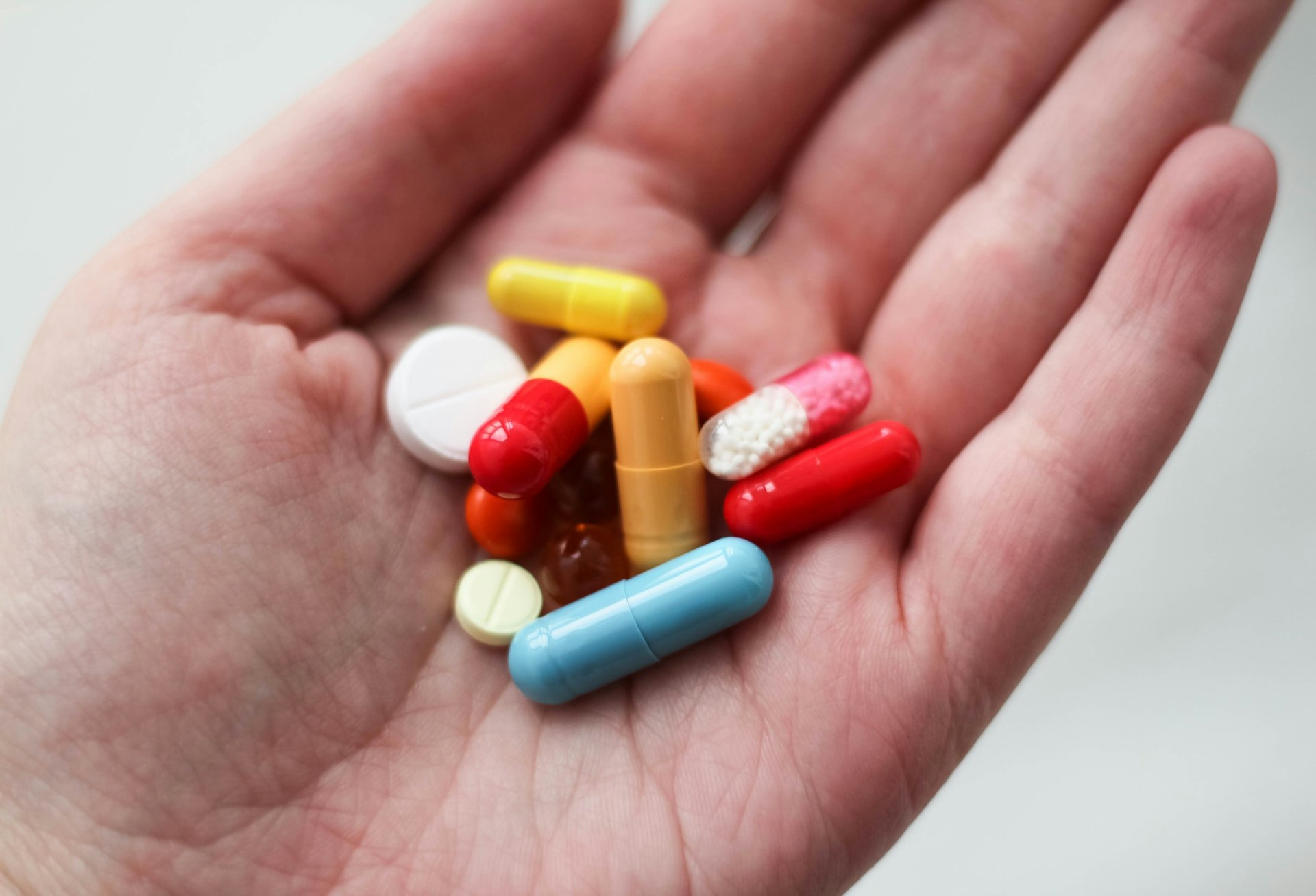Nutrition Supplements and Cancer
Feb 09, 2022
Share

Have you wondered if you need to start taking a vitamin, mineral or herbal supplement to help fight your cancer? There are thousands on the market, how do you know what you need or if it is even safe? Keep reading to find out information on what is needed during cancer treatment.
What vitamins should I be taking to battle cancer?
This is such a common question that people have during treatment. This is likely partly due to the fact that most cancer treatment is a pill or injection, and this makes people think that more pills or supplements would treat cancer better or faster. In reality, the best nutrition you can provide your body is a wide variety of fruits, vegetables, whole grains and lean proteins. By eating these kinds of foods, you will be automatically providing your body with the nutrients it needs to fight cancer and stay healthy. When you eat a whole piece of fruit, for example, you get a wide range of vitamins, minerals, and phytochemicals – not just one isolated compound.
The only supplements I generally recommend to most patients are Vitamin D and Omega-3 fatty acids, since intake of these is generally low for Americans. If you a having a really hard time getting in enough food, a multivitamin three times a week may be beneficial as well to help provide support for cancer patients.
Should I be taking high doses of vitamins during cancer treatment?
Generally speaking, dietitians and cancer physicians discourage taking high or ‘mega’ doses of any vitamin or mineral during cancer treatment. This is because they may have negative interaction with your treatment, and it actually may make treatment less effective – especially if you are in a curative treatment program. Antioxidants may interfere with the mechanism of some chemotherapy treatments, so very high doses of these should especially be avoided. A well balanced diet with a variety of fruits and vegetables will provide your body with the necessary, but not excessive, amount of antioxidants and other nutrients needed. There has been no clinical evidence of any single or combination antioxidant supplemental having a significant impact on cancer care.
Are herbal and botanical supplements safe to take?
This is a hard question to answer broadly because there are hundreds, if not thousands of herbal products on the market and few of them have been rigorously tested in randomized controlled trials to test for side effects, interactions, and efficacy. The National Center for Complementary and Integrative Health publishes fact sheets summarizing the research on selected herbs and botanicals, which may aid your choice of supplement. Also suggested is the Memorial Sloan Kettering AboutHerb website, which is very easy to navigate and has information on most mainstream supplements. It is always key to discuss any herbal supplements you wish to take with your care team – they have access to databases which provide more information than a Google search would, and can help make sure you are making the right choice for you and your treatment.
How do I know my brand of supplement is pure?
Because supplements are regulated as food and not as prescription medicine, they do not require strenuous FDA oversight. The same herb sold over two different brands may have different potency and dosage information, depending on where it was grown and how it was processed. Independent labs such as the USP, NSF and ConsumerLab.com verify that supplements are not contaminated by heavy metals and other harmful substances, and that their labels are accurate. These services publish lists of supplement brands that meet quality standards. It is important to note that these services do not comment on supplement efficacy, only quality and purity.
What are the most common herbs that have drug interactions?
There are a few main classes of herbs to avoid as they interfere with commonly taken cancer-treatment drugs. First, there are blood thinning herbs which interact with anticoagulants like warfarin. These herbs include garlic, ginko, ginseng, dong quai, St. John’s Wort, and feverfew. Second, there are antioxidants which interfere with chemotherapy medications. These are grapeseed and pinebark extracts. Next, there are phytoestrogens which could interfere with hormonal cancer treatments. Ginseng, dong quai, red clover and extracts of soy should be avoided if you are taking a hormonal treatment or have a hormone sensitive treatment. Note that whole soy foods are perfectly safe, but soy extracts should be avoided. Last, herbs that stimulate the immune system can alter the effectiveness of immune suppressing treatments like cyclosporine or tacrolimus. You should avoid taking astralagus or huang qi, and some research suggests that medicinal mushrooms and echinacea should also be avoided. This is not a comprehensive list, but just shows a few of the ways that herbs and botanical supplements can interfere with cancer treatments.
A large number of cancer patients take dietary supplements as a complement to their traditional medical treatment and diet. Your cancer care team should be supportive of this practice, and it should always be an open dialogue to make sure you are staying safe when making these choices. If you have questions about any specific supplements, you can always reach out to our providers at OncoPower – we are here to support you on your journey and have a range of cancer support services available.
This information is not intended as medical advice and should not be taken as such. Always discuss any medical decisions with your doctor before starting.
Trusted by cancer patients around the world.
Joan-Smith
Virginia, United States
ChuckHastings
Florida, United States
DebraPearl
Pennsylvania, United States
Jennweeks
Iowa , United States
PatrickDW
Western Cape, South Africa
Jamie-Alexander
Floroda United States
CJ
Liz
Florida, United States
NYCynthia
New York, United States
Ferdi
California, United States